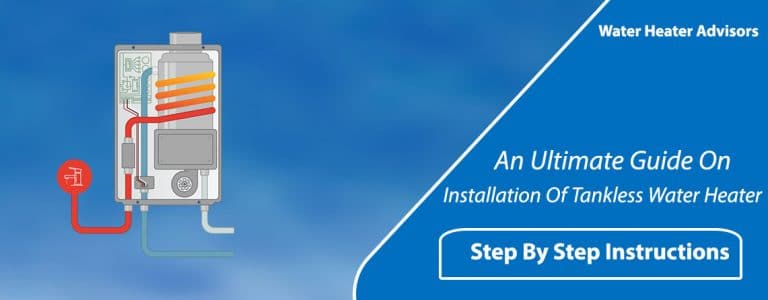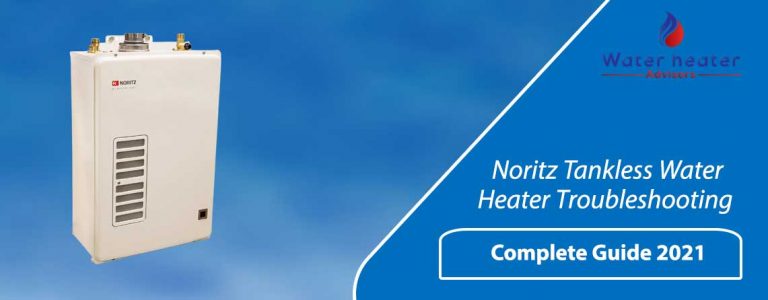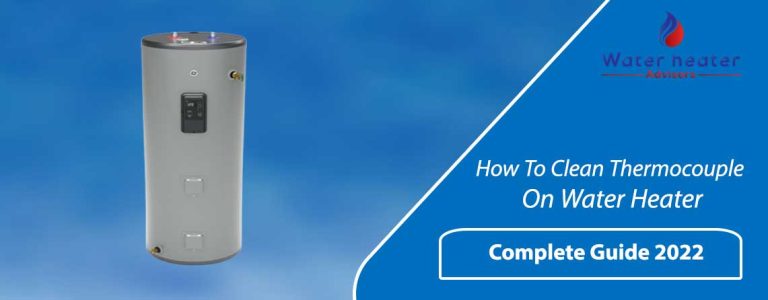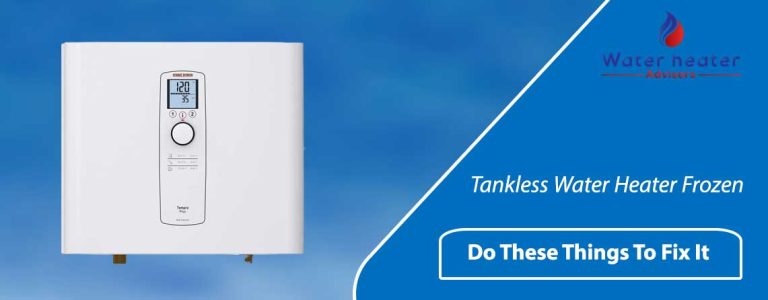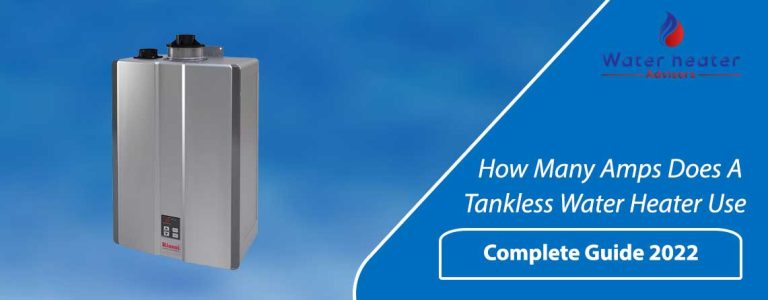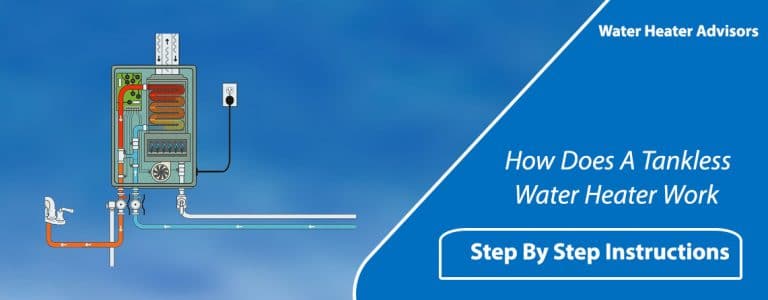Condensing Vs Non-Condensing Tankless Water Heaters – Which one is better 2022
If your energy expenditures are bogging you down, and you are trying to find a way to reduce your monthly bills, you can transition from a tank-style heater to a tankless water heater.
These units are powered by electricity, natural gas, and propane. However, the gas ones have two other types: condensing vs non condensing water heaters.
The condensing devices are worth your hard-earned money because they are budget-friendly and are more energy-efficient than non-condensing machines.
Deploying a condensing appliance will significantly lower your power usage and increase your water heating efficacy from 85% to 95%.
If you have decided to switch from a tank water heater to a tankless system, you have landed on the right page.
In this guide, we will educate you about the difference between condensing and non condensing tankless water heaters and their similarities.
We recommend you to read this guide till the end because it will help you make the right choice by understanding how each type functions, advantages, price, and other issues.
Before we talk about how these units work, let us tell you how a gas heater operates.
How Does A Gas-Fired Tankless Water Heater Work?
When you open a fixture on a gas-powered unit, the groundwater travels through a heat exchanger, after which it flows out at your desired temperature.
The heat exchanger uses gas combustion to heat the water as it runs through the stainless steel pipes before going to the fixtures.
Gas units create hot fumes as a byproduct of the gas fuel. The gas provides a certain volume of energy during combustion.
Nevertheless, some of this energy doesn’t heat the cold water and leaves the heater as hot exhaust gas.
The dissimilarity in how a device manages the hot exhausts determines whether it’s a condensing or non-condensing unit.
The condensing heaters recycle and use the power before discharging it as condensate water. On the other hand, non-condensing machines discharge the exhaust gases outside.
Read Also: How Does a Tankless Water Heater Work
What Is A Non Condensing Tankless Water Heater?
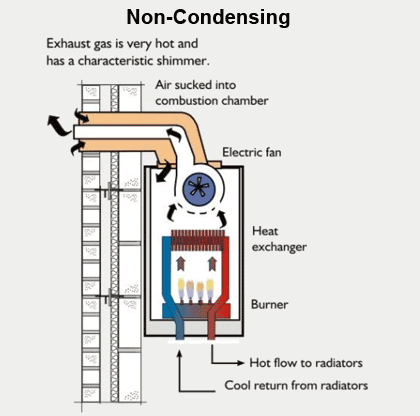
Traditional tank-style and tankless water heating systems are non-condensing. The non-condensing system is a reliable technology commonly used in most houses in the United States built even recently.
Nonetheless, US conditions were modified in 2015 to require considerably higher energy efficiencies.
The new standards did not make it necessary to install condensing heaters; they gave a significant push to condensing units.
Currently, most residences have non-condensing tank-based appliances, but you can choose to transition to a tank-style or tankless condensing heater from a non-condensing unit.
The condensing vs non-condensing tankless water heaters require these elements:
How Does A Non-Condensing Water Heater Operate?
When the gas is ignited to heat the water, a considerable amount of heat is produced. A non-condensing model uses stainless steel pipes for venting to handle the extra heat by venting it to the external air.
Usually, this exhaust gas is in the range of 300 degrees Fahrenheit, which is both an advantage and a problem.
The issue with these heaters is that the exhaust is extremely hot and scarring. As a result, venting is intricate in that it must use stainless steel pipes which are corrosion and heat-resistant.
Also, the venting should be installed in such a way as to eliminate the hazard of unwanted heating or fire in the house.
The advantage is that the gases vented outdoors still have significant heat, which can be used to make your tankless machine more energy efficient.
A condensing model is a more effective solution to apprehend the heat that would otherwise be vented.
Pros And Cons Of Non-Condensing Water Heaters
| Pros | Cons |
| Affordable | Costly vent pipes |
| Proven design | 80% energy-efficient |
| Need minimal expert maintenance | Very expensive to work |
| Easy to convert | Create byproducts that are harmful for the environment |
| Smaller size | Cannot direct vent |
What Is A Condensing Tankless Water Heater?
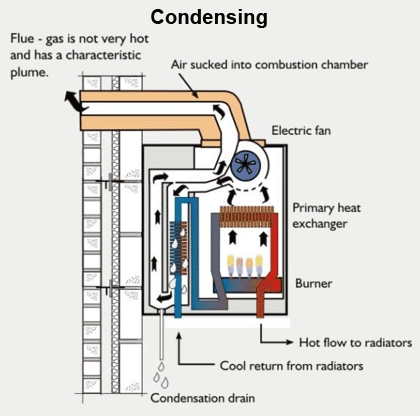
Groundwater enters from the inlet at the heater’s bottom when you need warm water. It burns a flame in the two heat exchangers in the device.
The water is warmed as it runs through the secondary heat exchanger. Any hidden warmth is educed before it goes to the venting system.
The water continues heating in the primary heat exchanger and departures through the outlet pipe to your tap.
Your appliance features a sensor that regulates the hot water to the temperature you have set.
The warm water only stops running when you turn off the cold inlet until you need hot water again. The unused water is not stored like in a traditional tank-based device.
In tankless condensing vs non condensing unit, the exhaust fumes of ignition are cooled and automatically ventilated through the wall or roof.
At the high burning efficacies of this appliance, a drain must be provided to handle the water condensed out of the combustion products, which are predominately water vapor and carbon dioxide.
Most frequently, it will need the deployment of a small pump to remove the condensed water if it must be raised to drain.
Since the exhaust gases from this system are cool, venting is simple and utilizes pocket-friendly pipes.
Condensing vs non condensing tankless systems requires the following elements:
How Does A Condensing Tankless Water Heater Function?
When the gas is ignited to heat the cold water flowing through the unit, a considerable amount of heat is produced in the primary heat exchanger. That heat is consumed via a heating component to create limitless hot water.
Condensing models are equipped with a secondary heat exchanger that extracts heat from the warm combustion products by utilizing groundwater’s cool temperature to extract warmth by condensing the water out of the hot combustion products.
This method significantly escalates the device’s efficiency, but it produces liquid, acidic water that must be disposed of.
Pros And Cons Of Condensing Tankless Water Heaters
| Pros | Cons |
| About 90% energy-efficient | High initial price |
| Use less fuel | Corrosion |
| Require affordable venting | |
| Easy to install | |
| Generate less undesirable byproducts |
What Is The Difference Between Condensing And Non Condensing Tankless Water Heaters?
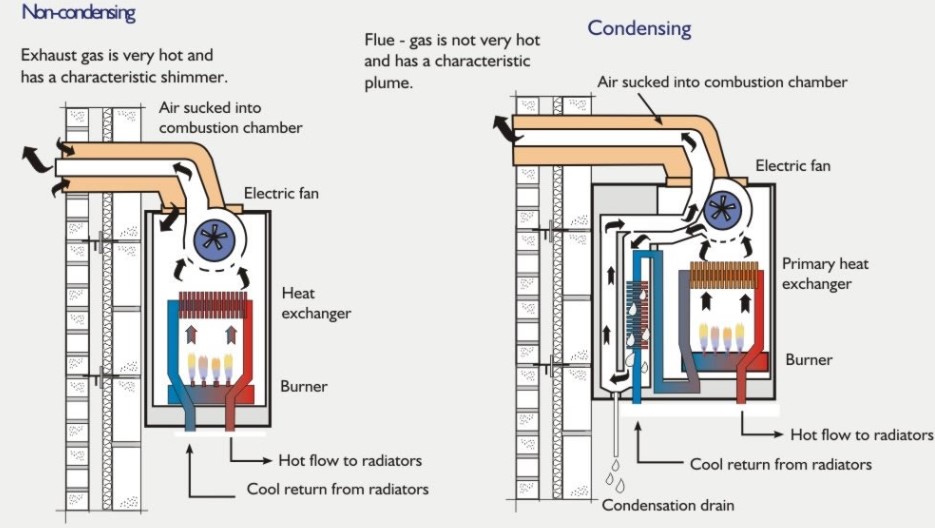
| Non-Condensing Water Heaters | Condensing Water Heaters |
| Have only one heat exchanger | Have two heat exchanger (primary and secondary) |
| Higher combustion temperatures up to 356 degrees Fahrenheit | Lower combustion temperatures |
| Don’t have drain pans | Have drain pans at the heater’s bottom |
| Lower initial costs | Very expensive to buy and install |
| Require stainless steel venting pipes | Require PVC venting pipes |
| Higher venting system maintenance prices | Lower venting system maintenance prices |
| More carbon emissions | Lower carbon emissions |
| Loses 30 percent combustion gases through the vent | Recycle surplus heat in heat exchanger |
Conclusion:
Nowadays, on-demand and unlimited warm water is a basic need of every household. If you want to cut down your energy bills, you can switch to a condensing water heater without overthinking.
Nevertheless, before mounting it in your residence, make sure to procure expert advice about whether the transition is appropriate for your residence.
You may have to spend a hefty initial purchase price, but you will witness better returns on your investment after every year. Best of all, you will be contributing to a cleaner atmosphere.
We hope our guide has helped you understand the basic difference between condensing vs non-condensing tankless water heaters. If you have any questions or confusion, please feel free to contact us.

